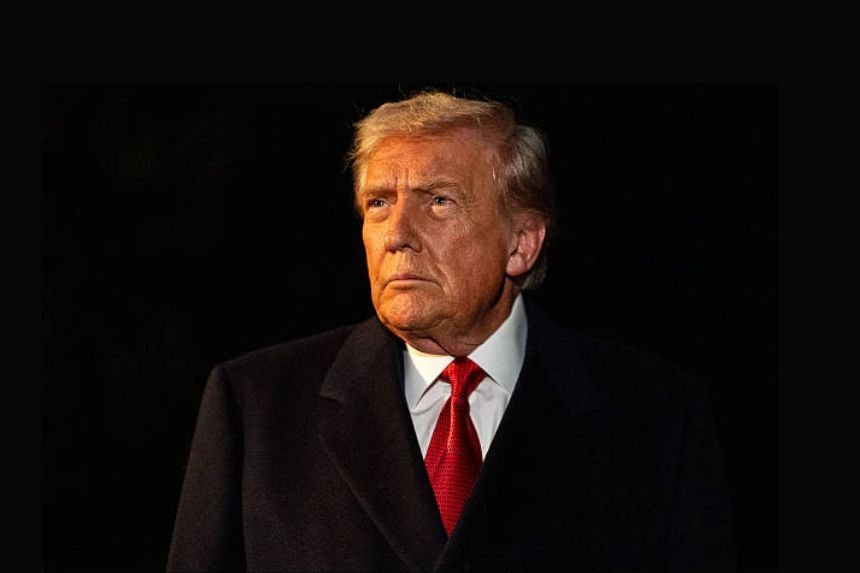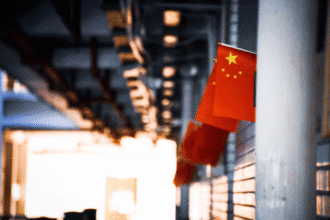The recent Trump and Japan Critical Minerals Deal marks a significant milestone in securing strategic resources for both nations. By establishing a reliable framework for rare earths and other essential minerals, the agreement aims to reduce dependency on concentrated supply sources and enhance economic resilience.
This partnership not only strengthens the supply chain but also supports technological industries, defense sectors, and green energy initiatives that rely heavily on these critical materials. Read another news on globzette.com.
Furthermore, the deal signals a coordinated effort to diversify supply networks, mitigate geopolitical risks, and ensure stable trade flows amid global uncertainties.
Analysts view this agreement as a key step in fortifying the economic and strategic collaboration between the United States and Japan.
Why the Deal Was Needed
Rare Earths Supply Agreement and Critical Minerals Supply Chain
The global reliance on rare earths and other critical minerals has been a strategic concern for decades. China’s dominance in rare earth exports created vulnerabilities for both the United States and its allies.
Export restrictions and stringent controls by China on strategic minerals affected high-tech industries, defense systems, and clean energy sectors. The Trump and Japan critical minerals deal aims to establish a secure and diversified supply chain, reducing dependency on a single source while ensuring industrial continuity.
This partnership also mitigates risks from potential export restrictions and creates a resilient framework for rare earths procurement.
US-Japan Trade Agreement and Economic Cooperation
The deal is more than just a commodity arrangement. It represents strengthened US-Japan economic cooperation, fostering strategic and commercial partnerships.
By formalizing a strategic mineral partnership, both countries aim to maintain technological and industrial competitiveness. This agreement complements broader trade negotiations and aligns with ongoing efforts to diversify supply sources for critical materials.
China Export Controls and Supply Chain Diversification
China’s historical rare earths export restrictions had created global market imbalances. By signing this deal, the US and Japan respond proactively to China’s export control policies, ensuring a steady supply of crucial minerals for their economies.
Amazon Web Services Outage Disrupts Major Apps Worldwide
This approach emphasizes diversified supply chains, reducing exposure to geopolitical disruptions and trade-related uncertainties.
Key Leaders and Summits Behind the Agreement
Trump-Xi Jinping Summit and Asia-Pacific Economic Cooperation Summit
The Trump-Xi Jinping summit and other diplomatic engagements highlighted the urgency of addressing rare earths supply challenges. Discussions around US-China trade negotiations and China’s mineral policies underscored the need for alternative sources.
The Japan-US partnership benefits from these high-level dialogues by proactively securing critical resources while reducing reliance on unstable trade routes.
US-Japan Strategic Alliance
This agreement reinforces the US-Japan strategic alliance, extending beyond traditional defense cooperation into economic and industrial resilience. By integrating the supply of strategic minerals into bilateral ties, both nations strengthen their geopolitical and commercial positions in the Asia-Pacific region.
Details of the Deal
Rare Earths Export Restrictions and Mineral Sources
Under the Trump and Japan critical minerals deal, both nations have outlined frameworks for sourcing rare earths from stable and diversified locations. This initiative includes stockpiling critical minerals, joint exploration efforts, and shared investments in processing capabilities.
It ensures uninterrupted industrial supply chains and mitigates risks posed by potential China rare earth export controls.
Economic and Trade Implications
The deal facilitates US-Japan economic cooperation, boosting trade in technology, defense, and clean energy sectors. By securing critical materials, both countries can stabilize industrial production, reduce costs, and attract investment into high-tech and strategic industries.
Additionally, this US-Japan trade agreement enhances supply chain predictability, allowing companies to plan long-term manufacturing and innovation strategies confidently.
Strategic Mineral Partnership for the Future
The partnership formalizes a strategic mineral partnership that can evolve into broader collaboration in technology, energy, and industrial development.
This initiative ensures that rare earths and critical minerals remain available for essential sectors, including electronics, renewable energy, and military systems, reducing vulnerability to geopolitical tensions.
Impact on Global Markets
Trade Optimism and Investor Sentiment
The announcement of the Trump and Japan critical minerals deal immediately influenced global markets. Investors and industry stakeholders view this as a proactive measure to secure supply chains and reduce trade risks associated with China’s export restrictions.
Trade optimism has surged in commodities markets, particularly for rare earths, reinforcing the importance of strategic resource partnerships.
Strengthening Supply Chain Resilience
The deal contributes to supply chain resilience by ensuring alternative routes and reliable access to essential materials. It mitigates risks from geopolitical tensions and China’s dominance in rare earth exports, offering industries a stable foundation for planning and investment.
This stability is crucial for high-tech, defense, and energy sectors dependent on uninterrupted mineral access.
Commodities Market and Economic Growth
The agreement also signals positive trends in commodities news and industrial forecasts. Secure access to critical minerals encourages investment in downstream industries, stimulating innovation and economic growth.
It provides a predictable framework for pricing and availability, reducing volatility in markets heavily influenced by China’s export control policies.
Challenges and Future Outlook
Managing China’s Export Control Policies
While the Trump and Japan critical minerals deal addresses immediate supply concerns, China remains a major global supplier of rare earths. The challenge lies in balancing market dynamics while maintaining diversified supply chains.
Continuous monitoring of China’s export policies and tariffs is essential to ensure the deal’s effectiveness.
Expanding Industrial Collaboration
Future steps may include joint investments in mining, processing, and refining capabilities. The strategic mineral partnership can expand to other critical sectors, reinforcing US-Japan economic cooperation and reducing reliance on monopolistic sources.
Geopolitical and Trade Implications
The deal strengthens the US-Japan strategic alliance while indirectly influencing US-China trade negotiations. By securing critical minerals, the US and Japan enhance their bargaining position in global trade discussions and promote stability in industrial supply chains, benefiting allied nations and multinational corporations.
Conclusion
The Trump and Japan critical minerals deal marks a significant milestone in securing the future of critical mineral supply chains and strengthening the economic partnership between the two nations.
By diversifying sources, reducing dependence on China, and formalizing a strategic mineral framework, the agreement ensures industrial resilience and promotes economic stability.
This deal also enhances US-Japan economic cooperation, paving the way for future collaborations in technology, defense, and renewable energy sectors.
Market reactions indicate optimism, with investors recognizing the positive impact on supply chain resilience and trade stability. As global demand for rare earths and critical minerals grows, this agreement positions the US and Japan as leaders in proactive resource management.
Overall, it represents a forward-looking strategy that balances economic, industrial, and geopolitical priorities, ensuring long-term benefits for both countries.
FAQs
- What is the Trump and Japan critical minerals deal?
It is an agreement between the US and Japan to secure rare earths and other critical minerals, reducing dependence on China. - How does the deal affect supply chains?
The deal strengthens critical minerals supply chains, ensuring industrial stability and diversification of sources. - Why are rare earths important in this agreement?
Rare earths are crucial for electronics, defense systems, and clean energy, making secure access essential for both nations. - How does this impact US-China trade negotiations?
By securing alternative mineral sources, the US and Japan reduce vulnerabilities in US-China trade negotiations.
5. What are the future implications of the deal?
It sets the stage for broader strategic mineral partnerships, industrial collaboration, and strengthened economic and geopolitical ties between the US and Japan.








